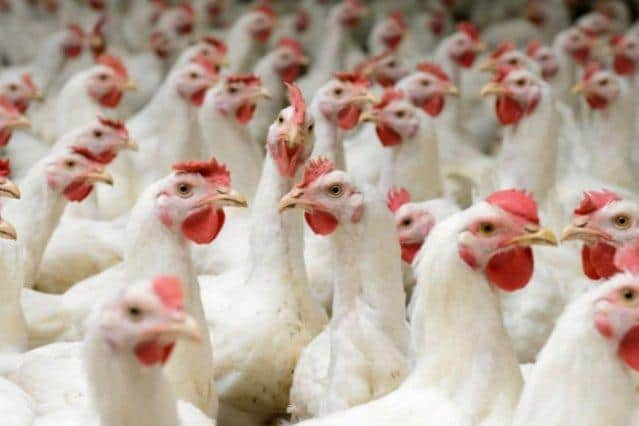Restrictions for bird keepers will be relaxed next week as risk of avian flu drops
Mandatory housing measures for poultry and captive birds have been in place across the UK since November, as the country has been dealing with its largest ever outbreak of highly pathogenic avian influenza (H5N1).
More than 100 cases have been confirmed so far and North Yorkshire has been identified as a hotspot.
Advertisement
Hide AdAdvertisement
Hide AdBirdkeepers were warned that wild birds migrating to the UK from Europe were spreading the disease, however the migratory season is now over.


The Department for Environment, Food and Rural Affairs (Defra) announced poultry and other captive birds will no longer need to be housed from Monday, May 2, unless they are in a Protection Zone, as the risk of bird flu has been reduced to “medium”.
All poultry gatherings will remain banned.
However, all birdkeepers are being urged to maintain high standards of biosecurity, by thoroughly cleaning and disinfecting all housing, clothing, footwear, equipment and vehicles before and after contact with their birds.
In a joint statement, the four Chief Veterinary Officers said: “Whilst the lifting of the mandatory housing measures will be welcome news to bird keepers, scrupulous biosecurity remains the most critical form of defence to help keep your birds safe.
Advertisement
Hide AdAdvertisement
Hide Ad“It is thanks to the hard work of all bird keepers and vets, who have played their part in keeping flocks safe this winter, that we are in a position to take this action.
“However, the recent cases of avian influenza show that it’s vital that bird keepers remain vigilant for signs of disease and maintain stringent standards of biosecurity.”
Health experts say the disease is being spread by wild birds, through direct contact and faeces, but the risk to human health is very low.
A woman in the South West of England tested positive for bird flu in January but the UK Health Security Agency (UKHSA) said she had been in “very close, regular contact with a large number of birds.
